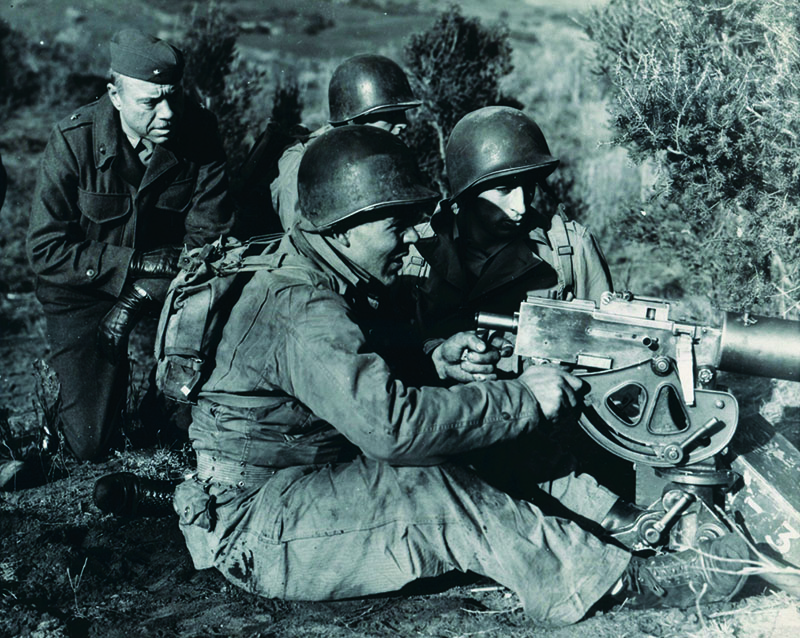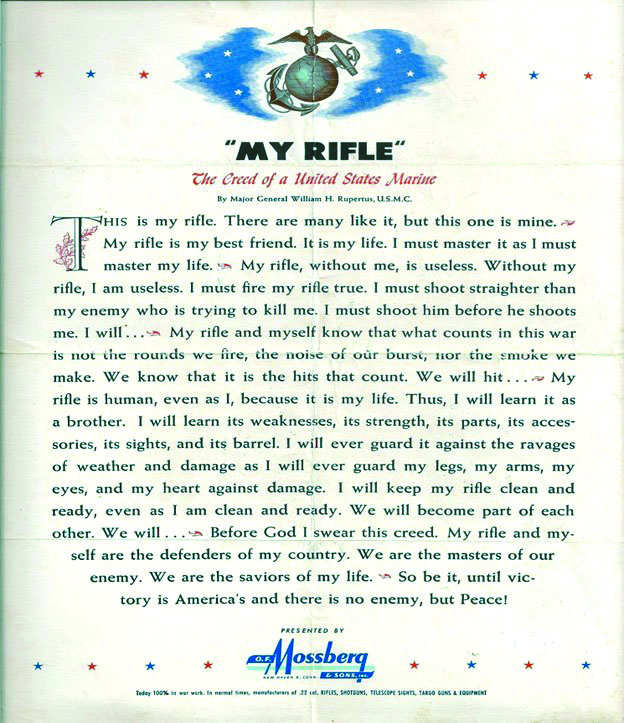
The Rifle, the Creed And the General: Honoring the Legacy Of Major General William H. Rupertus
By: Amy R. PeacockPosted on October 15, 2025
In March 1942, just months after the bombing of Pearl Harbor, the Marine Corps Chevron published a short but powerful piece titled “My Rifle: The Creed of a United States Marine.” Its author, then-Brigadier General William H. Rupertus, was serving as the commanding officer of Marine Corps Base San Diego, Calif. A career Marine and seasoned marksman, he understood better than most that a Marine’s rifle was more than a weapon—it was a lifeline.
That simple yet stirring creed, written during a time of global chaos and national mobilization, would go on to define the ethos of the United States Marine Corps for generations. As we celebrate the 250th anniversary of the Marine Corps, I want to share the story behind the rifle creed and the man who wrote it. He was my grandfather.
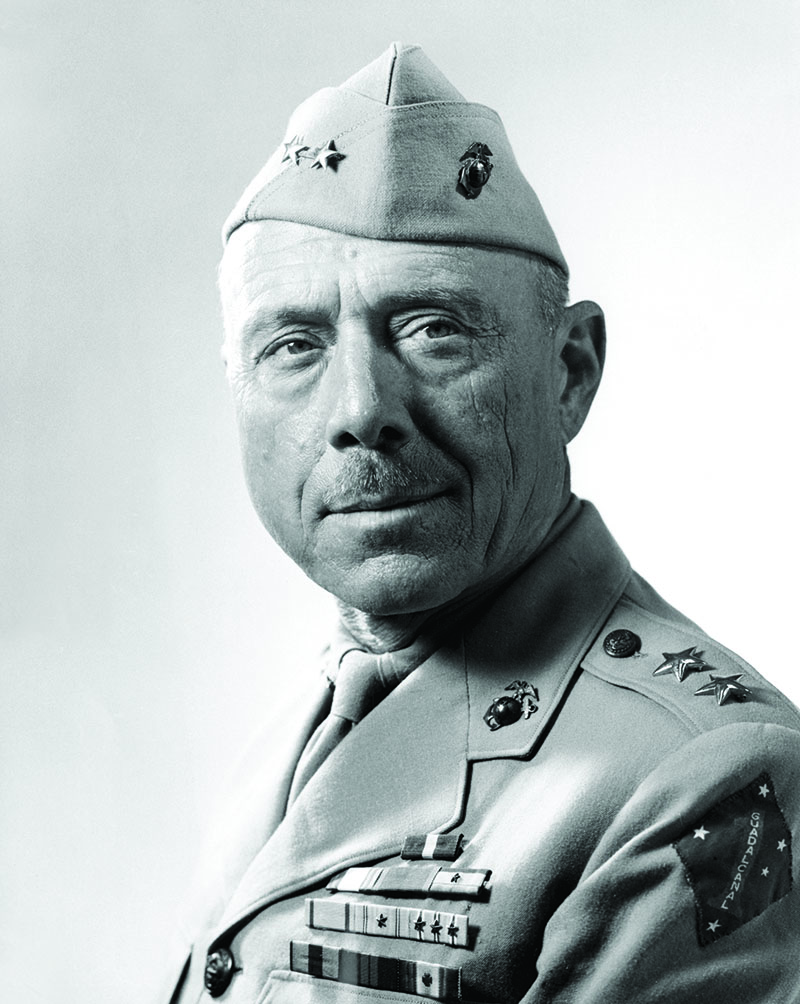
A Marksman from the Start
Rupertus joined the Marine Corps in 1913 after transferring from the U.S. Revenue Cutter Service (USRCS). He had graduated from the USRCS Academy second in his class but was denied sea duty due to his diagnosis with Bright’s Disease, which was supposed to kill him within three to five years.
Determined, he set his sights on the Marine Corps and graduated first in his class from the Marine Officers’ School. By 1914, he had been chosen, along with several classmates, to serve on the Marine Corps rifle team, a prestigious group that competed at the national level and symbolized the Corps’ elite marksmanship tradition. In addition to his duty on the USS Florida (BB-30), his early career centered on the rifle team and the disciplined culture it required.
Rupertus was not just a competent marksman—he was an Expert, earning several awards and the Distinguished Marksman badge.
Later, he spent time at the Marine Corps Headquarters in Washington, D.C., working closely with legendary marks-men and instructors, shaping the next generation of Marine riflemen. In an era when precision shooting was still revered and rifle qualification meant something personal, Rupertus helped instill a culture of marksmanship that remains a hallmark of the Corps to this day.
When he was stationed in China as a commanding officer with the 4th Marines, he also oversaw many rifle matches, a popular activity for these “China Marines” and competing countries.
Why He Wrote the Creed
After the Japanese attacked our fleet at Pearl Harbor on Dec. 7, 1941, catapulting us into World War II, the Marine Corps expanded rapidly, and thousands of new recruits filled training depots. In early 1942, Rupertus headed from Marine Corps Base San Diego, where he oversaw one of the nation’s largest hubs for preparing new recruits, to New River, N.C., to join General Alexander A. Vandegrift in the formation and training of the 1st Marine Division.
These young men came from all over the country, many with no military background and little experience with firearms. But they were ready to fight.
Rupertus had witnessed the brutal Japanese military tactics in China during the 1937 Battle of Shanghai while with the 4th Marines on his second duty tour in China; he and many of the officers and men there had predicted the Japanese would attack the United States.
Rupertus understood that the rifle had to become personal and sacred to each Marine if it was going to save their lives and win the ground battles in the Pacific. According to family and Marine Corps lore, Rupertus wrote the creed on a piece of paper in late February 1942 after reflecting on the importance of personal responsibility, discipline and survival in combat. He wanted every Marine, especially those new to the service, to understand that their rifle was not merely another piece of issued equipment.
And so, in quiet reflection, he wrote “My Rifle: The Creed of a United States Marine.”
“This is my rifle. There are many like it, but this one is mine. … My rifle is my life. I must master it as I master my life.”
Upon publication, the creed was immediately embraced. While the Chevron is no longer in print, Rupertus’ words have become a permanent fixture in the soul of the Corps.
A Quiet Tradition
William H. Rupertus went on to command 1stMarDiv during some of the most brutal fighting of the Pacific War, including Tulagi, Guadalcanal, Cape Gloucester and Peleliu. His belief in the rifleman, forged on the rifle range and articulated in the creed, never wavered.
When you understand the background, this rifleman’s creed is poetic, brutally practical and profound, knowing what America, our allies, the Marine Corps and all of the U.S. military were facing in 1942. And what we face today.
Since the creed was first published, it has been memorized by generations of Marines and other branches of our military. It’s been recited in the movies “Full Metal Jacket” and “Jarhead” as well as the popular video game “Call of Duty: Modern Warfare.” Though modern boot camp training no longer has recruits reciting it aloud daily, its words still echo in the ethos of every rifle range and combat zone where Marines serve.
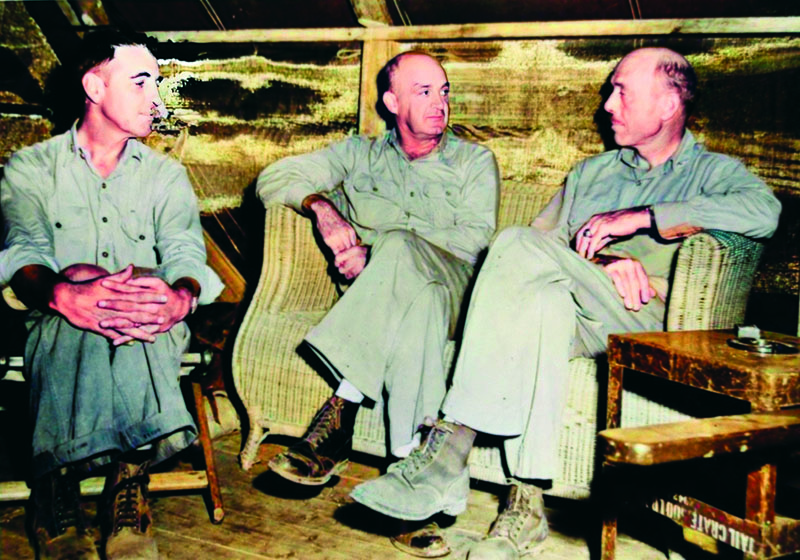
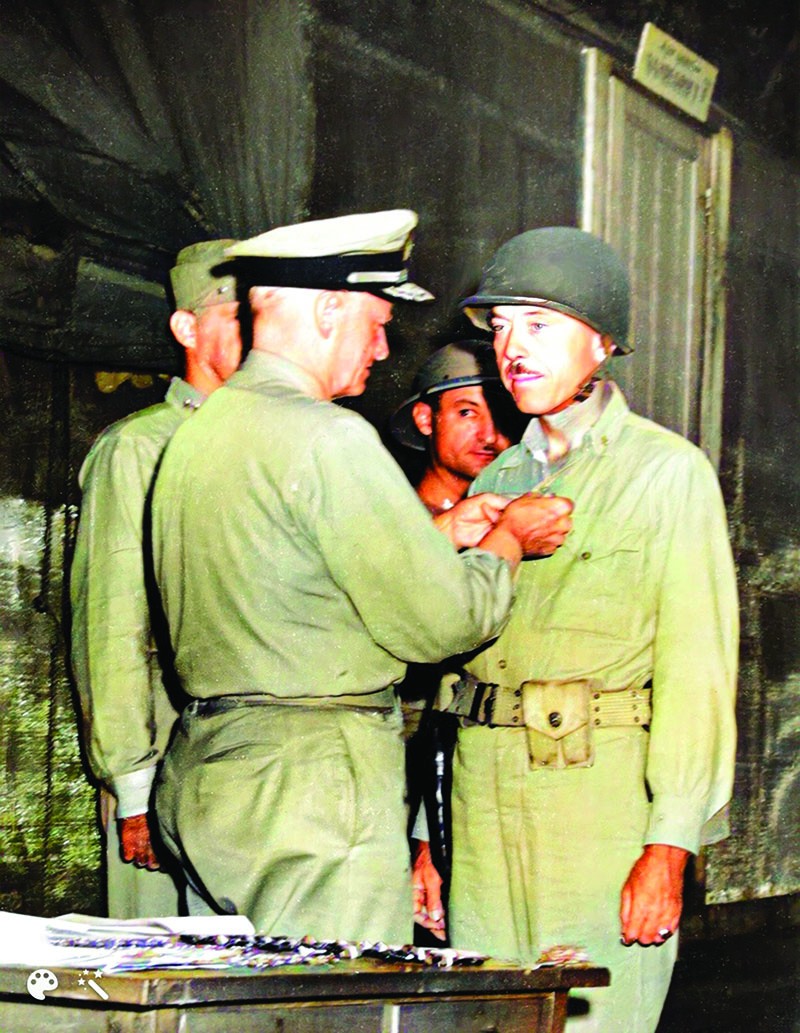
A Legacy Carried Forward
Though he fought hard, Rupertus did not see the end of the war. He died of a heart attack in March 1945 at the Marine Corps Barracks Washington, during a party with fellow veterans of 1stMarDiv.
In recent years, while researching his military background, I learned to recite the rifle creed myself. It’s more than military prose. It’s a reflection of who my grandfather was: precise, principled and utterly dedicated to the mission and the Marine. Above all, understanding that in the fog of war, a Marine must rely on what he knows best: his rifle, his training and his brothers and sisters in arms.
Over 80 years later, the rifle creed still speaks not only to the Marine Corps but to anyone who understands what it means to take responsibility, to train with purpose and to treat their tools—and their mission—with respect.
As we honor 250 years of the Marine Corps in 2025—and reflect on the nation it has served for two and a half centuries—I offer this story in remembrance of a man who knew that the heart of the Corps beats in the chest of every rifleman and riflewoman. Because before the battles, before the medals and before the victories—there was a Marine and his rifle.
Semper Fidelis.
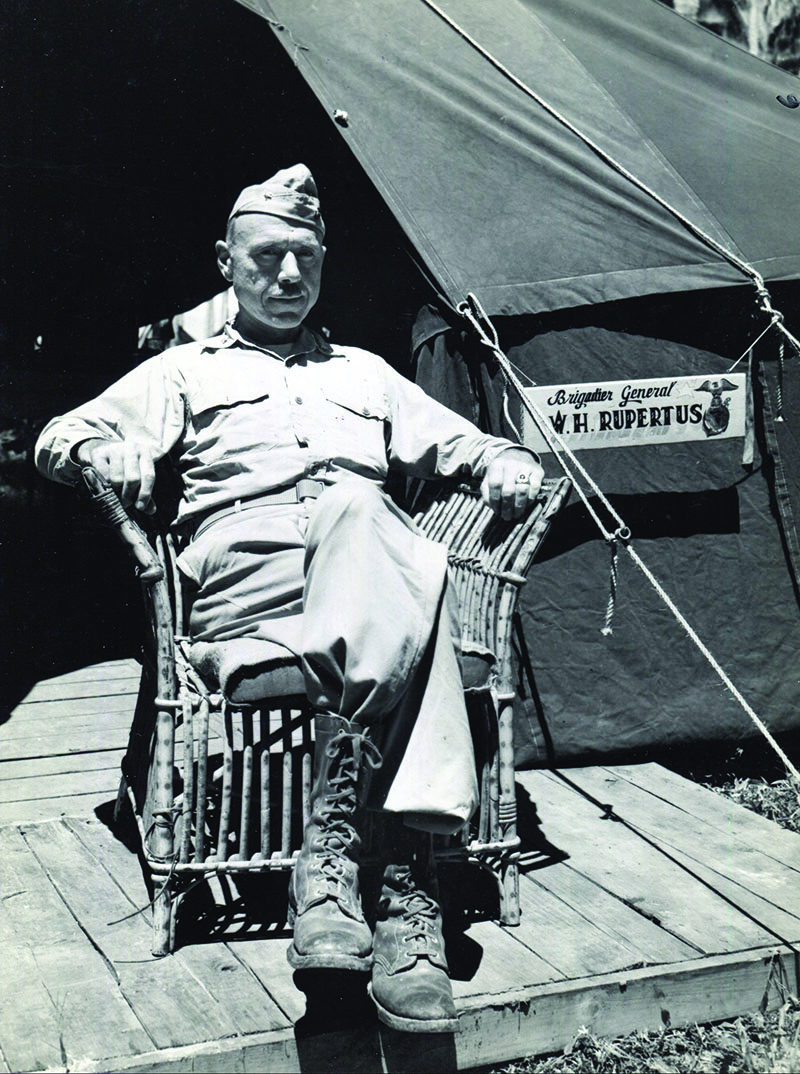
Author’s bio: Amy Rupertus Peacock is a daughter and granddaughter of U.S. Marines and co-author of the book “Old Breed General.”


